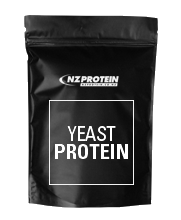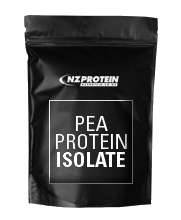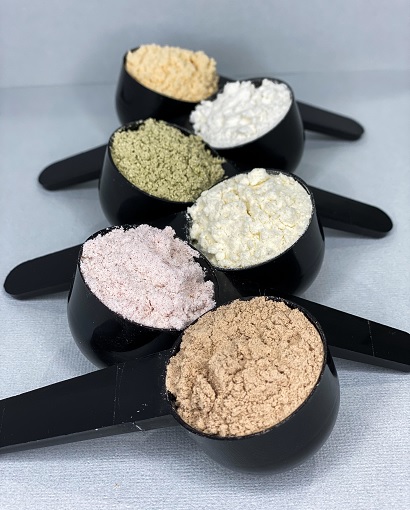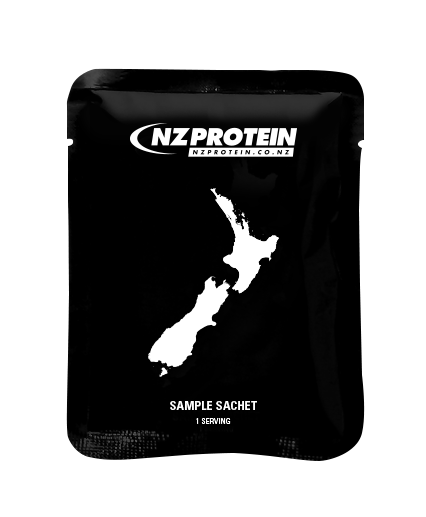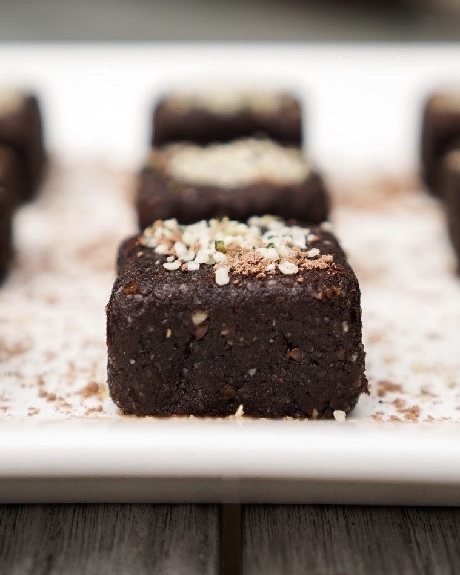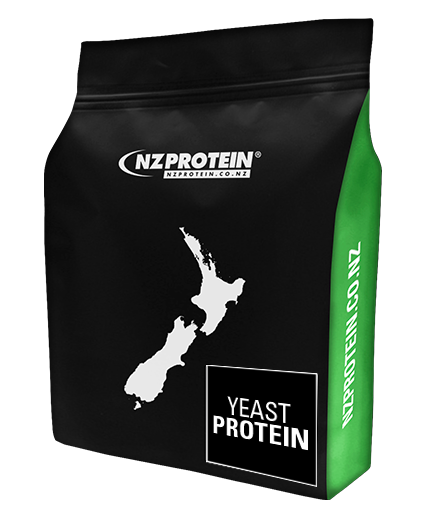
 (1).jpg)
Yeast Protein 1kg
Eco-Friendly and Sustainable Protein Made by Fermentation.Yeast Protein Powder
This product is a new type of protein that's innovative and environmentally friendly. It's extracted by fermentation and, unlike animal and plant proteins, is not influenced by climate and environment.
Yeast protein has a protein level that's similar to whey and pea protein powders (80%), with a complete amino acid profile and high Branched Chain Amino Acids (BCAA) content that's suitable for muscle growth and repair.
It also has a protein digestibility score (PDCAAS) of 1 - that's as high as milk proteins and higher than plant protein powders.
Benefits
- Complete protein with similar protein content to whey and pea
- Contains all essential amino acids and high in BCAAs for muscle growth and repair
- Digestibility PDCAAS score is the same as whey and higher than plant based proteins
- Slow digesting to provide amino acids to the body steadily
- Source of dietary fibre for gut health
- Animal free, GMO free, pesticide free, gluten free, dairy free, and allergen free
- Eco-friendly and sustainable source of protein
- Good alternative to plant and animal based proteins
- Note, the vitamin B12 content in yeast protein is neglible.
Taste and Texture
Yeast protein has a taste and texture that are both very similar to pea protein.
Digestibility
Protein digestibility is a measure of the proportion of protein that is absorbed by the body. In the below chart we are comparing three protein types (pea isolate, whey concentrate, and yeast) as all have similar 80% protein levels.
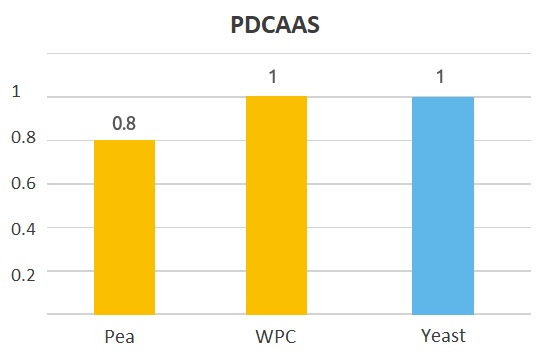
The Protein Digestibility-Corrected Amino Acid Score (PDCAAS) is a rating that determines the bioavailibility of a protein. Biological value is a measure of the proportion of absorbed protein that's retained for growth and maintenance.
The PDCAAS score for yeast protein is the same level for whey and is higher than pea protein.
Sustainable
Yeast protein is very sustainable and its manufacture follows a circular economy model.
Sugar cane and molasses from beets are the source of nutrients for the yeast, and in turn waste from the industrial production of yeast is used as organic fertiliser for the production of crops.

Yeast protein is made from fermentation so it's not influenced by environment. It's extracted in short production cycles that are highly effecient compared to plant and animal sources which have longer breeding cycles.

Yeast vs Pea Protein
Now that we know all the benefits of yeast protein we can address which is better - yeast or pea?
One serving of our yeast contains ~134 calories and ~24.8g of protein. One serving of our pea contains ~111 calories and ~25 grams of protein, so both have similar protein levels and yeast has higher calories. Be mindful that yeast contains some fibre which contributes to the calorie count.
Both are also high in L-leucine. Leucine is one of three branched chain amino acids and is primarily involved in muscle protein synthesis for muscle growth and recovery. It also contributes to the regulation of blood-sugar levels, growth hormone production and would healing.
The leucine content of yeast is about 7.5g per 100g, and in pea about 7g per 100g, so both are similar and both are good for muscle development. Both also have a similar amino acid breakdown but yeast is slightly higher in BCAA content.
As yeast is a new protein powder there is no data regarding how it would compare to pea when taken post workout, but there is research that suggests pea is as effective as whey in supporting muscle gain. Another study here found that pea protein vs whey protein taken post exercise both yielded positive results with no difference between the group taking pea and the group taking whey. Therefore we predict that it will be similar with yeast due to the similar amino acid profile and protein level that exists between yeast and pea.
Both protein powders are slow digesting and yeast has a slightly yeasty smell whereas pea is slightly grainy in texture. We recommend trying sample sachets first if unsure.
|
|
|
|
Protein Per 100g |
~80% |
~80% |
BCAA per Serve |
5.2g |
4.7g |
PDCAAS Score |
1 |
0.82 |
Source |
Yeast from sugarcane. |
Yellow peas. |
Key Attributes |
Vegan friendly. Hypoallergenic. Good amino acid profile and slightly higher in BCAA than pea. Environmentally friendly and is not influenced by climate and environment. |
Vegan friendly. Hypoallergenic and alkaline. Good plant based amino acid profile. Easily digestible and mixes easily. Lower in cost than yeast protein. |
Taste |
Similar to pea isolate. |
Similar to yeast protein. |
Yeast Protein Side Effects
Yeast protein is free of allergens and should be well tolerated.
Recipes
This product is new so we haven't tried any yeast protein recipes yet. We'll update this once we have.
Please note that this product is processed in a facility that also handles milk, egg, soy, peanut, and gluten ingredients.
Place a Review on this product
Very happy with it.
It does mix easily though.
I only shop from these guys now for all my proteins. Absolutely the best! I haven’t lived in NZ for years but when I visit, I do a big restock. 10/10!
Does tend to settle at the bottom of a cup a lot more than whey protein, easily solved by giving it an extra shake as you consume.
This seems to work very well for me
Texture: ultra-fine powdered Weet-Bix
Mixability: ultra-fine powdered Weet-Bix
I'm not sure if this is Yeast or Weet-Bix
Star omitted for Sample only
Unflavoured
ADD A REVIEW
Click on a flavour to see the nutritional information.
Choc Caramel (BB 31/01/26)
Serving size: 31.25g (2 heaped scoops)
Servings per pack: 32
| Name | Ave Quantity Per Serving | Ave Quantity Per 100g |
|---|---|---|
| Energy | 546kJ | 1749kJ |
| Calories | 131 | 418 |
| Protein | 23.8g | 76.3g |
| - Gluten | 0g | 0g |
| Fat - total | 2.8g | 9.1g |
| - Saturated | 0.1g | 0.3g |
| Carbohydrate | 2g | 6.5g |
| - Sugars | 0.2g | 0.6g |
| Sodium | 33mg | 105mg |
| Potassium | 11mg | 36mg |
| Iron | 2mg | 7mg |
| Calcium | 4mg | 11mg |
Ingredients: Yeast Protein, Cocoa, Flavours, Sweetener (Sucralose).
Unflavoured (BB 31/01/26)
Serving size: 31.25g (2 heaped scoops)
Servings per pack: 32
| Name | Ave Quantity Per Serving | Ave Quantity Per 100g |
|---|---|---|
| Energy | 560kJ | 1793kJ |
| Calories | 134 | 429 |
| Protein | 24.8g | 79.3g |
| - Gluten | 0g | 0g |
| Fat - total | 2.8g | 9g |
| - Saturated | 0g | 0g |
| Carbohydrate | 2.1g | 6.6g |
| - Sugars | 0.2g | 0.6g |
| - Fibre | 1.7g | 5.5g |
| Sodium | 34mg | 109mg |
| Potassium | 12mg | 38mg |
| Iron | 2.5mg | 8mg |
| Calcium | 4mg | 12mg |
Ingredients: Yeast Protein.
Typical Amino Acid Profile
(mg per serving - unflavoured)
Branched chain aminio acids:
| Leucine | 2360 |
| Valine | 1620 |
| Isoleucine | 1300 |
Other essential aminio acids:
| Lysine | 2200 |
| Methionine | 180 |
| Phenylalanine | 1440 |
| Threonine | 1360 |
| Tryptophan | 970 |
Non essential aminio acids:
| Histidine | 650 |
| Alanine | 750 |
| Arginine | 1610 |
| Aspartic Acid | 2750 |
| Cysteine/Cystine | 210 |
| Glutamic Acid | 3030 |
| Glycine | 420 |
| Proline | 1210 |
| Serine | 1320 |
| Tyrosine | 970 |
Test Reports
Here at NZProtein we always strive to be the best at what we do. We invest heavily in research and development to have innovative products and the best flavours.
We stand firmly behind our products so we have commenced periodic batch testing of products by independent third party laboratories. These test reports will provide further evidence of the standards we adhere to.
Please note that we will not be able to test every flavour due to the costs - there are simply too many flavours and various batches manufactured. For example, in the NZ Whey alone we have over 20 flavours, so it is not practicable to test every flavour in every batch but we will periodically submit samples in various flavours for analysis.
